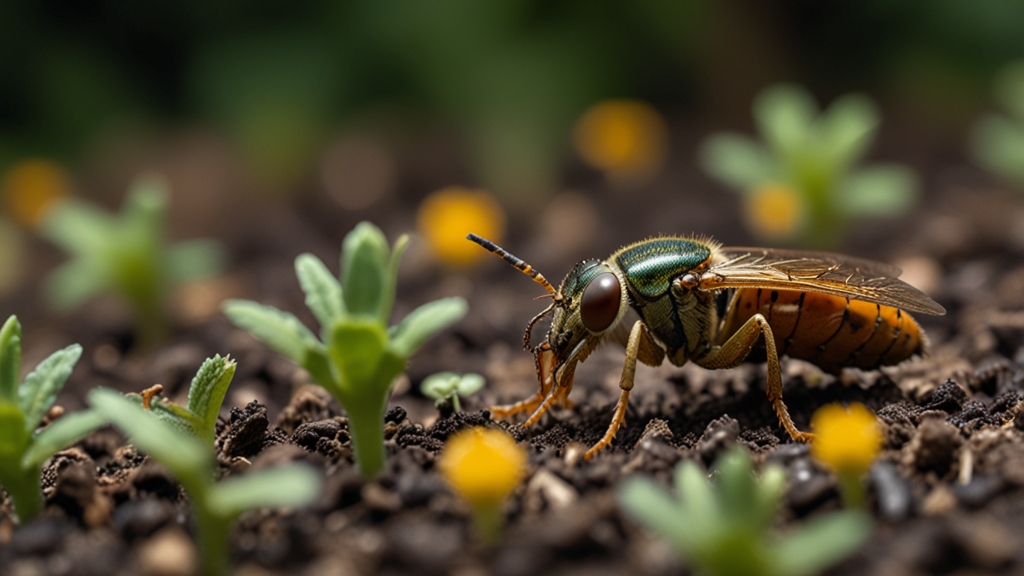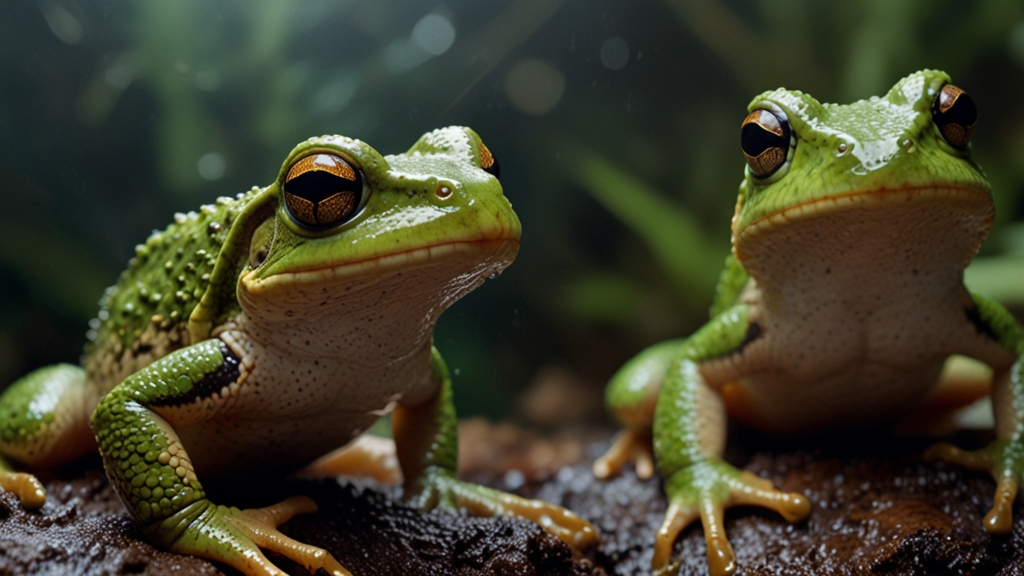The Unlikely Symbiosis: How Insects Help Our Gardens Thrive
When we think of a healthy garden, we often picture lush greenery, vibrant flowers, and perhaps a few carefully chosen garden ornaments. However, an often overlooked but crucial element of a thriving garden is its insect population. While some insects are indeed pests, many play vital roles in creating and sustaining a garden's ecosystem. This intricate relationship between insects and plants is a testimony to nature's complex and symbiotic balance.
Pollinators: The Unsung Heroes
Without a doubt, pollinators are among the most crucial insects to any garden. Bees, butterflies, and even some beetles facilitate the reproductive process of many plants by transferring pollen from one flower to another. This action is essential for the production of fruits, vegetables, and seeds. Gardens without sufficient pollinators often show diminished growth and reduced yields.
"In the absence of pollinators, approximately one-third of the world's food crops would cease to exist. These tiny creatures are truly the backbone of global agriculture."
Pest Control: Natural Predators
Not all insects are destructive. Many serve as natural predators to the pests that can wreak havoc on our gardens. Ladybugs, for instance, feed on aphids, tiny insects that can severely damage plants by sucking their sap. By introducing and supporting predator insects, gardeners can reduce or eliminate the need for chemical pesticides, leading to a more organic and sustainable environment.
Beneficial insects like spiders, wasps, and certain types of flies contribute to controlling the population of harmful insects. Their presence ensures that pests are kept in check, allowing plants to grow and prosper without significant damage. Encouraging these natural predators requires creating a habitat conducive to their survival, such as planting nectar-producing flowers and providing shelter.
Soil Aerators: The Underground Workforce
We often overlook the importance of soil health in gardening. However, this is another area where insects play a pivotal role. Earthworms and beetles are fantastic soil aerators. As they burrow through the soil, they create channels that allow air, water, and nutrients to reach plant roots more effectively.
"Soil aeration not only improves water retention but also fosters the growth of beneficial microorganisms, both of which are essential for healthy plant development."
Decomposers: The Recyclers
Decomposition is a natural process that recycles nutrients back into the soil, and insects play a significant role in this cycle. Dung beetles and various types of flies break down organic matter, turning it into nutrient-rich compost that fertilizes plants. This process ensures that nothing in the garden goes to waste and that the soil remains fertile and productive.
Encouraging Beneficial Insects
To make the most of these natural allies, gardeners can take several steps to create a more inviting environment for beneficial insects. Planting a diverse array of flowers can attract a variety of pollinators, while leaving undisturbed areas in the garden provides habitats for predators and decomposers. Additionally, minimizing the use of pesticides ensures that helpful insects can thrive without being inadvertently harmed.
By recognizing and fostering the beneficial roles that insects play, gardeners can create robust, resilient ecosystems that require less human intervention. This synergy between plants and insects not only yields healthier gardens but also contributes to broader ecological health.
"In a well-balanced garden ecosystem, every element supports the others, creating a harmonious environment where plants can truly flourish."
Conclusion
The next time you find yourself admiring your garden, take a moment to appreciate the intricate web of life that makes it possible. From pollinators to predators, soil aerators to decomposers, insects are indeed the unsung heroes of gardening. By understanding and supporting this delicate relationship, we can nurture gardens that are not only beautiful but also sustainable and thriving.









